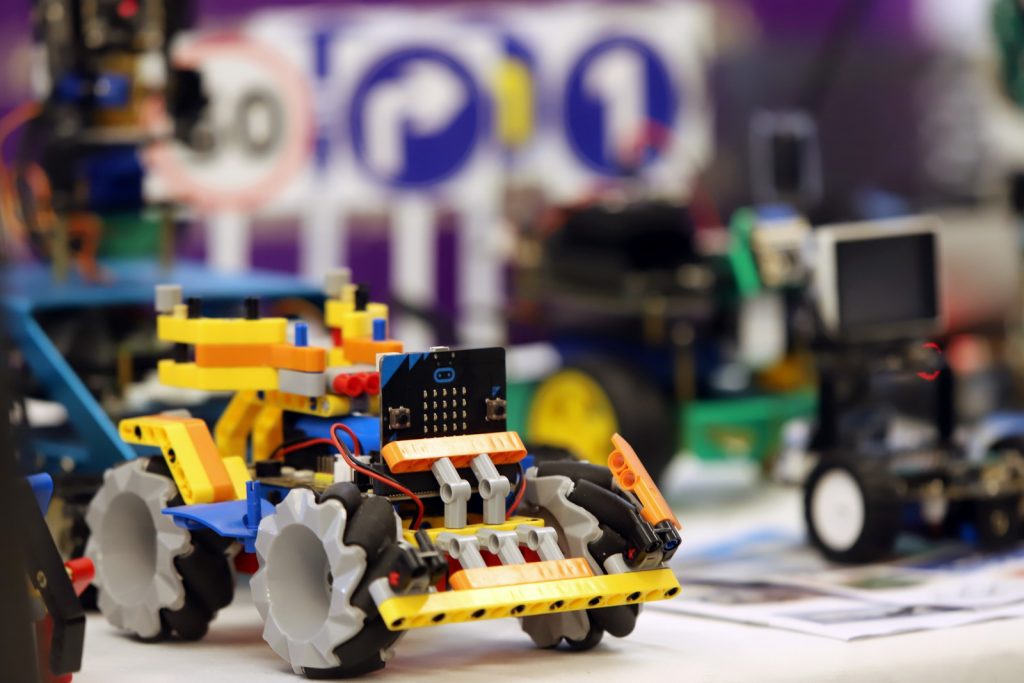For the second time, stakeholders in the education sector gathered at the EdTech Summit Hungary – Hungarian Educational Technology Conference and Exhibition on February 3, 2024. Participating educators, educational professionals, and enthusiasts attended presentations on the application of artificial intelligence in education. Members of the EdTech Coalition showcased their AI-based educational innovations at the accompanying exhibition.
The conference featured presentations by prominent experts in educational technology on the possibilities and risks of using artificial intelligence in pedagogy and educational technology, its legal aspects, digital child protection, and practical applications.
Artificial intelligence is becoming indispensable in education
Balázs Hankó, State Secretary for Higher Education, Innovation, Vocational Training, and Adult Education at the Ministry of Culture and Innovation, opened the EdTech Summit Hungary. He emphasized the need to regulate, rather than prohibit, the use of artificial intelligence. It must become part of education to shape the future workforce and integrate future knowledge into everyday life.
The secretary cited results from a survey conducted at this year’s Educatio exhibition, showing that 77% of prospective university students use AI-based programs, with ChatGPT being the most common. 75% of them find AI useful for learning, 56% believe AI encourages learning, while only 4% believe it limits learning.
Prof. Dr. Valéria Csépe, President of the Hungarian Accreditation Committee for Higher Education and a psychologist, highlighted the impact of AI on the learning process. Today’s students develop in a rich sensory environment with endless possibilities. This changed environment results in generational differences in skills and abilities. She argued that in this new learning environment, procedural knowledge based on task and problem-solving skills, rather than declarative knowledge reflecting lexical knowledge, provides a competitive advantage.
The goal is for stakeholders in Hungarian education to benefit from educational technology innovations
David Ritter, President of the EdTech Coalition, addressed the questions raised by new technologies in his presentation. These include ethical considerations regarding data usage and the evaluation of appropriate content and reliable technology – dilemmas that also contributed to the establishment of the EdTech Coalition last September. He emphasized that the alliance aims to facilitate information flow, promote professional dialogue, build international embeddedness, explore business opportunities, foster networking, and support professional development for the improvement of Hungarian education.
According to Roland Jakab, President of the Artificial Intelligence Coalition, AI should be applied to enhance competitiveness and stimulate economic growth. He shared the results of a survey conducted at the end of last year, where 72% of respondents believed that AI has made work more efficient. Concerns about the danger AI poses to jobs were expressed by 35% of infrequent users, while 60% of regular users were concerned. Jakab emphasized that it is not artificial intelligence that takes away jobs, but rather those who use AI take them from those who do not. AI alone does not create value; only those who use it do. He added that if we start preparing in time, we can benefit from the technology.
In addition to conference presentations and panel discussions, attendees participated in various accompanying programs throughout the day. Four workshops provided an opportunity for participants to engage in dialogue with speakers on the practical aspects of AI. Dr. Attila Rausch, an adjunct professor at Eötvös Loránd University, discussed knowledge transfer through AI. They reviewed the characteristics of emerging educational technologies and their integration into in-class and extracurricular activities. They also discussed factors to consider to ensure that the use of AI increases rather than hinders the effectiveness of the learning process.
Another supplementary element of the event was the all-day exhibition, where attendees could meet with members of the EdTech Coalition. Represented personally by 13 of its nearly 60 members, including the Hungarian Education Office, Edutus University, DigitalTech EDIH, Innoedu, Cubix Institute of Technology, Balázs-Diák Ltd., Redmenta, Future-Now Consulting Ltd., Xeropan, SteamProgramEdu, Stiefel Hungary Ltd., and H-Didakt Ltd., attendees could gather further information about the coalition at the EdTech Coalition booth. Exhibitors presented robotic developments, AI-based software solutions, and numerous innovations throughout the day.
“Our goal in organizing the EdTech Summit Hungary Hungarian Educational Technology Conference and Exhibition is to establish connections between Hungarian and international digital education stakeholders and promote the spread of digital educational technology to enhance learning and teaching efficiency. We hope that conference participants have drawn inspiration from today’s presentations and that we can organize the next EdTech Summit Hungary with similar enthusiasm in September,” added Dr. Flóra Rétfalvi, Deputy CEO of EduTech Hungary Zrt., concluding the conference.


